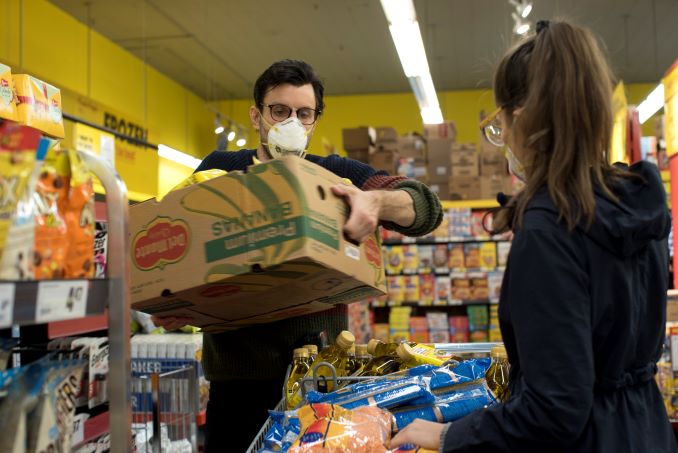For some of us, our biggest issue right now is what we’re going to watch next on Netflix, while there are several populations that are unsure of where their next meal is going to come from. LifeCrates is a new non-profit aimed at solving that exact problem for low-income seniors, by providing subsidized food crates to low-income seniors age 65 and older to keep them safe during the pandemic. We spoke to the founder, Adam Zivo, to learn more about how we can help feed those who need us right now.

Describe your charity/non-profit in a few sentences.
LifeCrates is a new emergency food aid program that services low-income seniors in Toronto. Each crate of food that we deliver has approximately 70,000 calories, which is enough to feed the average senior for 30-40 days. The crates are carefully calibrated by our team of dietitians to maximize nutrition, keeping people healthy during a time when health is paramount. We also partner with other organizations to support their food aid programs.
What problem does it aim to solve?
The COVID crisis has created massive issues in food security. Not only has the demand for food aid ballooned, many traditional food aid programs, such as food banks, have shut down or are operating at reduced capacity. Many organizations have popped up in response to this, and, of them, we’re the sole one to focus specifically on the needs of seniors, who are particularly vulnerable right now.
When did you start/join it?
I started this program in mid-March, when it became apparent that vulnerable Torontonians would need all the help they could get to weather an impending food crisis.
What made you want to get involved?
My mum chose to self-isolate upon returning from a vacation. I was leaving for quick work trip in Mexico, and told her that, upon my return, I could deliver essentials to her door. While in Mexico, the Canadian government announced that all travelers would be advised to self-isolate upon return to Canada, regardless of which country they had traveled to. I was concerned for my mum, but realized that she had the resources to have food delivered to her. However, I considered that other people are not so lucky, and felt that there was an ethical imperative to do something for them.
What was the situation like when you started?
With any new venture, whether charitable or for profit, the early stages are marked by incredible fluidity. Our first iteration of the LifeCrate could technically feed someone for a month, but it was nutritionally unsound. We also hadn’t connected with many service organizations at that point.
How has it changed since?
We shifted our focus from being the barebones option to being the nutritionally-focused option. Rather than advertising a public wait-list, like what other grassroots organizations are doing, we’re focusing on partnering with community organizations who can refer people to us. As a symptom of that, we’re much more focused on building out partnerships with community organizations than other players in this field.
What more needs to be done?
We raised a solid amount of seed funding for this service, but we need to establish longer-term funding solutions to ensure the longevity of this program. Unfortunately, the problems caused by this epidemic won’t be going away anytime soon. Above that, though we’ve had a lot of success with our partnership outreach, we’re very interested in finding ways to coordinate partners so that all of us, together, can share resources and be more than the sum of our parts.
How can our readers help?
We need financial donations. We need food donations. We need volunteers who can help us deliver food. We need specialized volunteers, such as sponsorship coordinators and web developers. If you have an idea of how you can empower us to help others, we want to hear it.
Do you have any events coming up?
We have no events coming up, given the crisis. We encourage you to follow our Instagram to follow our everyday operations.
Where can we follow you?
Follow us on Instagram (@lifecrates) and check out our website.
PAY IT FORWARD: What is an awesome local charity that you love?
We absolutely love the work being done by Kitchen 24. They’re an industrial kitchen space that is, at this point, providing 500 hot meals a day to vulnerable Torontonians, all of which, minus food donations, is being funded by the owner, Steve Kidron.
